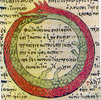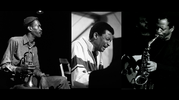#nightshift
- Banned
- #1
Ask a question / get an answer ? Wonderful video with a historic Macy’s Parade NYC slideshow.
Here’s hoping something very bad happens to Trump soon ……..
Are You Glad To Be In America ? - James Blood Ulmer (1980)
Personnel:
Here’s hoping something very bad happens to Trump soon ……..
Are You Glad To Be In America ? - James Blood Ulmer (1980)
Personnel:
- James Blood Ulmer – guitar, vocals
- David Murray – tenor saxophone
- Oliver Lake – alto saxophone
- Olu Dara – trumpet
- Billy Patterson (Spaceman Patterson) – rhythm guitar (track 4)
- Amin Ali – electric bass
- G. Calvin Weston, Ronald Shannon Jackson – drums
Last edited:







